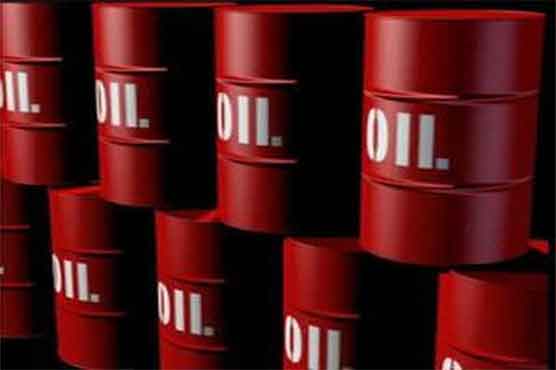Thursday, 12 November 2015 00:49
 NEW YORK: Oil prices fell about 3 percent on Wednesday to their lowest since August on worries that U.S. government data will show a seventh weekly build in crude inventories.
NEW YORK: Oil prices fell about 3 percent on Wednesday to their lowest since August on worries that U.S. government data will show a seventh weekly build in crude inventories.
U.S. crude stocks jumped 6.3 million barrels last week, powered by a big rise at the Cushing, Oklahoma, delivery point as higher imports offset increased refinery runs, data from industry group the American Petroleum Institute showed late on Tuesday.
Analysts polled by Reuters had forecast a more modest build of about 1 million barrels.
The Energy Information Administration (EIA) will issue official inventory data on Thursday, a day later than usual due to the U.S. Veterans Day holiday on Wednesday.
Crude prices have fallen in five of the last six sessions on worries about building U.S. inventories.
Brent crude was down $ 1.58, or 3.3 percent, at $ 45.86 a barrel by 1:23 p.m. EST (1823 GMT). The session low was $ 45.83, the lowest price since Aug. 27.
Analysts saw more pressure also coming onto U.S. crude, whose benchmark West Texas Intermediate (WTI) contract was down $ 1.33, or 3 percent, at $ 42.88.
WTI’s fundamentals have been somewhat superior to Brent’s in recent months due to easing U.S. crude production. But analysts said that advantage could fade as North American shale output shows new signs of vigor.
“With U.S. commercial crude cover likely to see new 80-year highs by month’s end amidst some indications that the rate of production decline is slowing, our long held view that WTI will be re-visiting the late August lows of $ 37.75 has been reinforced,” wrote Jim Ritterbusch of Chicago oil consultancy Ritterbusch & Associates.
A traffic jam of about 40 oil tankers has emerged along the U.S. Texas coast this month, a snarl that some traders see as the latest sign of an unyielding global supply glut.
Fears that the largest oil producers such as Saudi Arabia and Russia were still pumping around record levels were also weighing on the market.
OPEC member Ecuador said at an Arab-South American summit in Riyadh that the only way to balance the market was to cut production and it aimed to reach an agreement on that at the producer group’s December meeting.
At the same summit, Saudi Oil Minister Ali al-Naimi told Reuters he had discussed markets with his Venezuelan counterpart Eulogio del Pino.
Venezuelan President Nicolas Maduro used the summit to push his idea of convening a meeting of world oil producers that could revive sub-$ 50 a barrel prices that have walloped the Venezuelan economy.

























